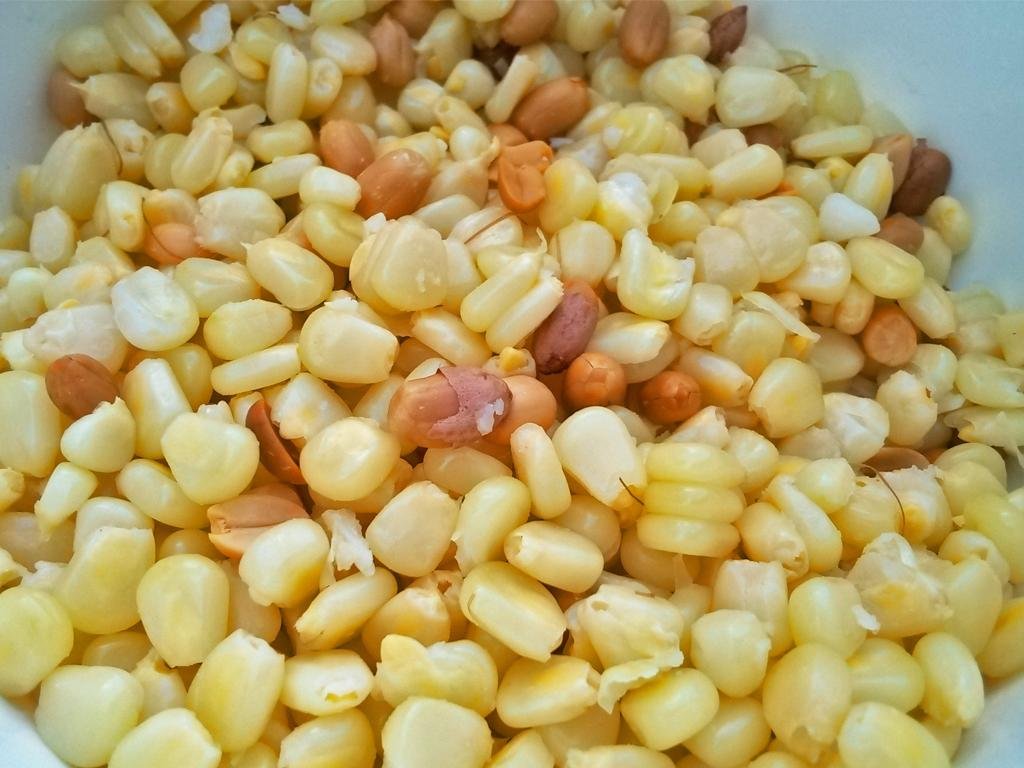Nutrition
Health benefits of almonds

• Spinach
Almonds pack a dense nutritional punch to benefit you and your body. If you’re looking to strengthen your heart, your bones, or even your libido, almonds can help do that trick.
Here are some major health benefits of almonds.
Lower Cholesterol: Eating almonds helps to lower levels of bad kind of cholesterol, called low-density lipoprotein (LDL), increase levels of the good kind, high-density lipoprotein (HDL) cholesterol. Almonds also have anti-inflammatory and antioxidant properties to help protect you from heart disease.
Keep a Healthy Weight: Although they contain a high number of calories, almonds can actually help to reduce your risk of weight gain and obesity- as long as you pay attention to portion size. The protein and fibre in the nuts make you feel full faster, so you can better control your calorie intake while still satisfying your hunger.
Lower Blood Pressure: Almonds can help your systolic blood pressure, which offers even more protection against heart disease.
Essential Vitamins, Minerals, and Fibre: almonds are rich in valuable nutrients for your body, like magnesium, vitamin E, and dietary fibre. A single serving of almonds makes for a nutritious and filling snack.
Stronger Bones: Almonds have calcium and phosphorous, which improve bone health and can protect you from fractures.
Better Blood Sugar Control: Almonds seem to help curb blood sugar spikes after meals, which is key for people with diabetes.
Better Gut Health: Recent researches appear to suggest that almonds can protect the health and immunity of the gastrointestinal (GI) tract. A healthier gut means a better immune system and a stronger body.
Nutrition although technically seeds, almonds are considered nuts. Like many nuts, almonds provide plenty of nutrients. An ounce of whole almonds contains; calories 152, protein six grammes, fat 13 grammes, carbohydrates sixgrammes, dietary threegrammes and sugar one gramme..
SOURCE: www.webmd.com
Nutrition
Dietary management of prostate cancer

Eat balanced diet
In this new chapter, we will be discussing how we can manage prostate cancer with our diet.
Prostate cancer, although rare in men under 40 years, is the third most common cause of cancer deaths in men of all ages. The prostate is a gland below a man’s bladder that wraps around the urethra (the passage that guides urine out of the body).
Signs and symptoms of prostate cancer may include:
● Problems passing urine, such as pain, difficulty starting or stopping the stream of urine, or dribbling.
● Frequent urination
● Lower back pain
● Pain with ejaculation
The level of a substance called prostate specific antigen (PSA), is often high in men with prostate cancer, so doctors check the level of PSA as a way to screen for prostate cancer. Since the PSA test became common, most prostate cancers are found before they cause symptoms. Notwithstanding, a lot of people present late and little or nothing can be done for them. But be aware that PSA can also be high in other conditions.
In as much as the ultimate management is surgical and/or medical, lifestyle modification and nutrition can go a long way in preventing prostate cancer.
Foods to include
● Fiber rich foods such as; whole foods, fruits and vegetables, seeds and nuts.
● Lycopene rich foods such as; tomatoes, water melon, sweet pepper, and red grapes.
● Omega-3 fatty acid rich foods such as; salmon, flaxseed, anchovies, and sardines.
● Selenium rich foods such as; mushrooms, shrimps, Brazil nuts, salmon, and oatmeal.
● Vitamin E rich foods such as; spinach, almonds, and asparagus.
● Vitamin C rich foods such as; oranges, tangerines, pineapples, and lemons.
Foods to avoid
● Red meat such as; beef, mutton, and chevon.
● Dairy products such as; milk, butter, cheese, yogurt and custard.
● Highly processed foods such as; sugary drinks, syrups and jams, and candies.
● Saturated fatty foods such as; pastries, deep fried foods, and lard.
● Highly salted foods such as; salted nuts, salted beef, salted fish, and potato chips.
Lifestyle modification
Modifying our lifestyle from a predominantly sedentary lifestyle to incorporating exercises like going for walks, jogging, and riding bicycles, as well as avoiding late-night high-calorie meals, excessive alcohol intake, and cigarette smoking will serve to prolong our healthy life and prevent prostate cancer from being our burden.
In conclusion, our strength and zeal is highest in our youth and we should take full advantage of this by changing our lifestyle now for the better and incorporating a healthy diet that will keep us free from such a diagnosis in our mid and elderly life.
The writer, Bernice Asare Korkor, is the CEO of Holistic Health Consult
“Your diet your health, your health your wealth”
E-mail: holistichealthconsultgh@gmail.com
Nutrition
Abora

Delicious Abora
Abora is one of the delicious snacks of the Ewes. It is made from corn and can be eaten at afternoons and late afternoons. Not every corn can be used to prepare Abora because some take longer periods to get cooked. This is why it is necessary to tell the vendor what you will use the corn for.
Ingredients
● Two cups of corn
● Two tablespoonful of salt
● Three tablespoonful of sugar
Preparation
● Soak the corn overnight
● Wash and cook the corn
● Cook until it is soft and you can
see the inner part of the corn
● Scoop a portion into a bowl
● Add salt and sugar to taste
● Can be eaten with roasted
groundnut or coconut
– Aids digestion
– Regulates blood pressure
– Supports heart health
– Lowers risk of chronic disease
– Provides protective antioxidants
– Promotes a healthy gut
Source: Healthline.com







